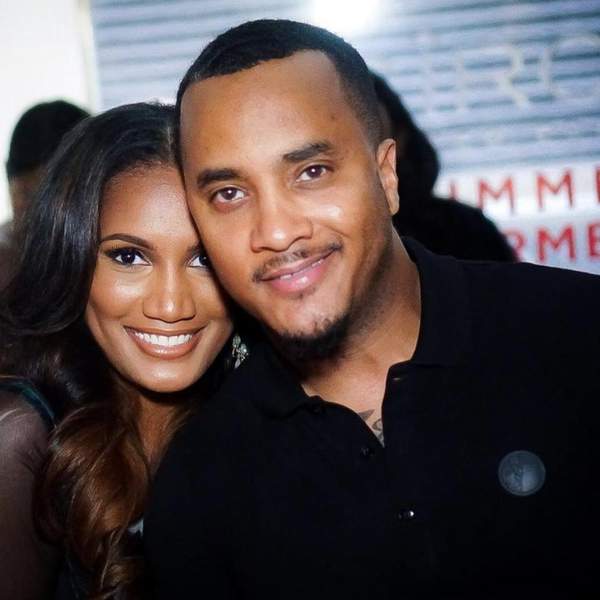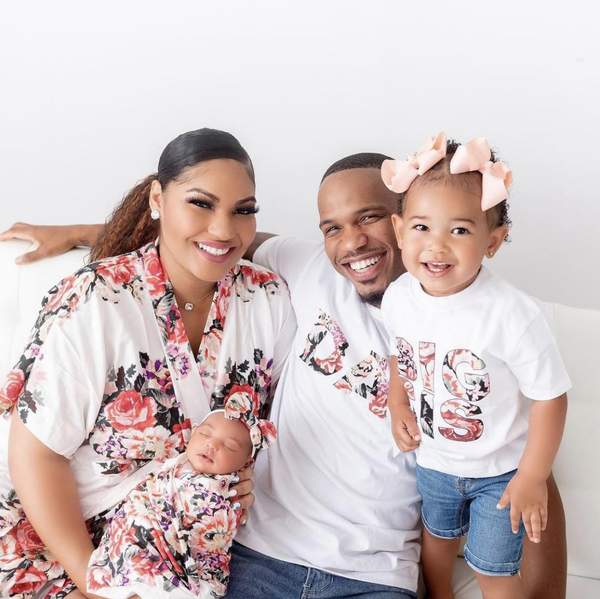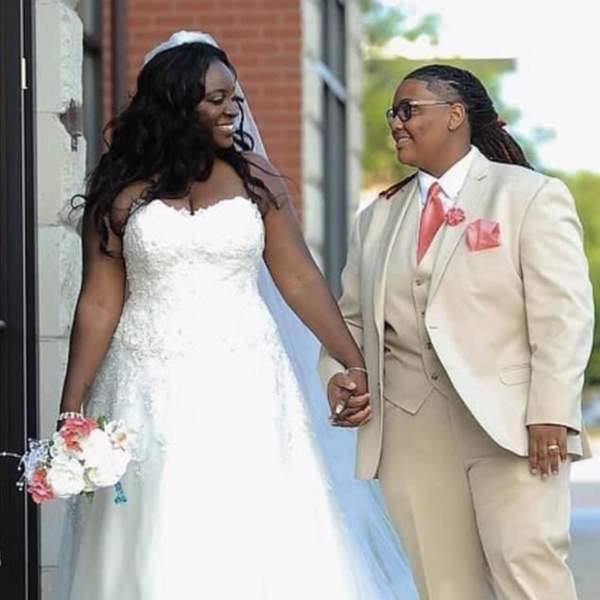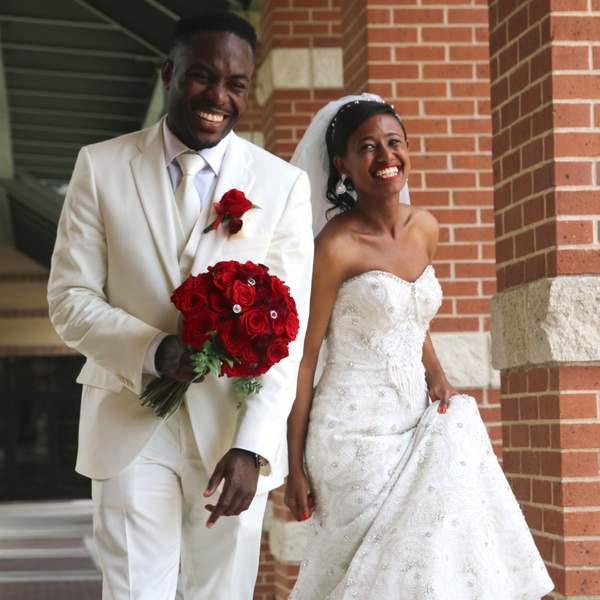In xoNecole's Our First Year series, we take an in-depth look at love and relationships between couples with an emphasis on what their first year of marriage was like.
It's true what they say, "absence makes the heart grow fonder," and after being in a three-year long-distance relationship the love between Ijeoma and Jonathan Kola is absolutely adoring! These love birds crossed paths during freshmen year on the campus of Harvard University. Both bright-eyed and bushy-tailed, the two were eager to jumpstart their college careers and take on the world. But, as fate would have it, cupid interfered and redirected their sights.
"He gave me very 'fresh off the boat' vibes. I'm from Nigeria. I was born in Nigeria, but I grew up in America and Jonathan was born in Kenya and grew up in Kenya. He came to college from Kenya. To me, he was very African," recalled a hysterical Ijeoma. Jonathan's Prince Akeem in Coming to America persona didn't scream husband material to Ijeoma right away, but Ijeoma's bubbly personality and positive spirit intrigued Jonathan instantly.
During the couple's senior year, their friendship blossomed into a full-blown relationship. After graduation, Jonathan moved across the globe to Nigeria and Ijeoma moved to New York to pursue a second degree. She admitted she wasn't thinking about marriage then, but being in a long-distance relationship really forced them to really get to know each other on an emotional level. Two years later, Jonathan moved back to the U.S. to attend graduate school in California. By the second year of their long-distance romance, Ijeoma knew she could spend eternity with Jonathan. "I knew that I wanted to be with him, but I also knew I didn't want to be long-distance," said Ijeoma. She spiced things up when she presented Jonathan with the ultimate ultimatum.
Read carefully ladies, Ijeoma told Jonathan, "If you don't propose by my birthday, we got to keep it moving." Keep it moving was clearly the last thing Jonathan wanted to do. A few days before her 25th birthday, Jonathan popped the question and the rest was history. In this installment of Our First Year, Ijeoma and Jonathan sat down with xoNecole and gave us all the details on their struggle with communication, loosening family ties, and the best advice they received during their first year of marriage. Here's what they had to say:
*Responses have been edited and condensed for clarity.
The One
Ijeoma: I don't know if there was an exact moment [when I knew he was the one]. Maybe after the second year of being long-distance. I was living in New York, and I had other options. I kind of felt like if I was willing to do this long-distance with this guy who's so far away in Nigeria at the time, then I must really care for him. I think that's when I knew he was the one. It was during that long-distance process.
Jonathan: When we started dating in college, marriage wasn't really on my radar. As we continued dating and things were working out well, it was pretty natural just to fall deeper into the relationship. Until Ijeoma said, "If you don't propose by my birthday we have to keep it moving." I was just about to graduate. I was trying to picture myself down the road. I was trying to figure out life. She made me see that it was the right time. For me, it was natural with a bit of encouragement. We were dating, we kept dating, and it was going well.
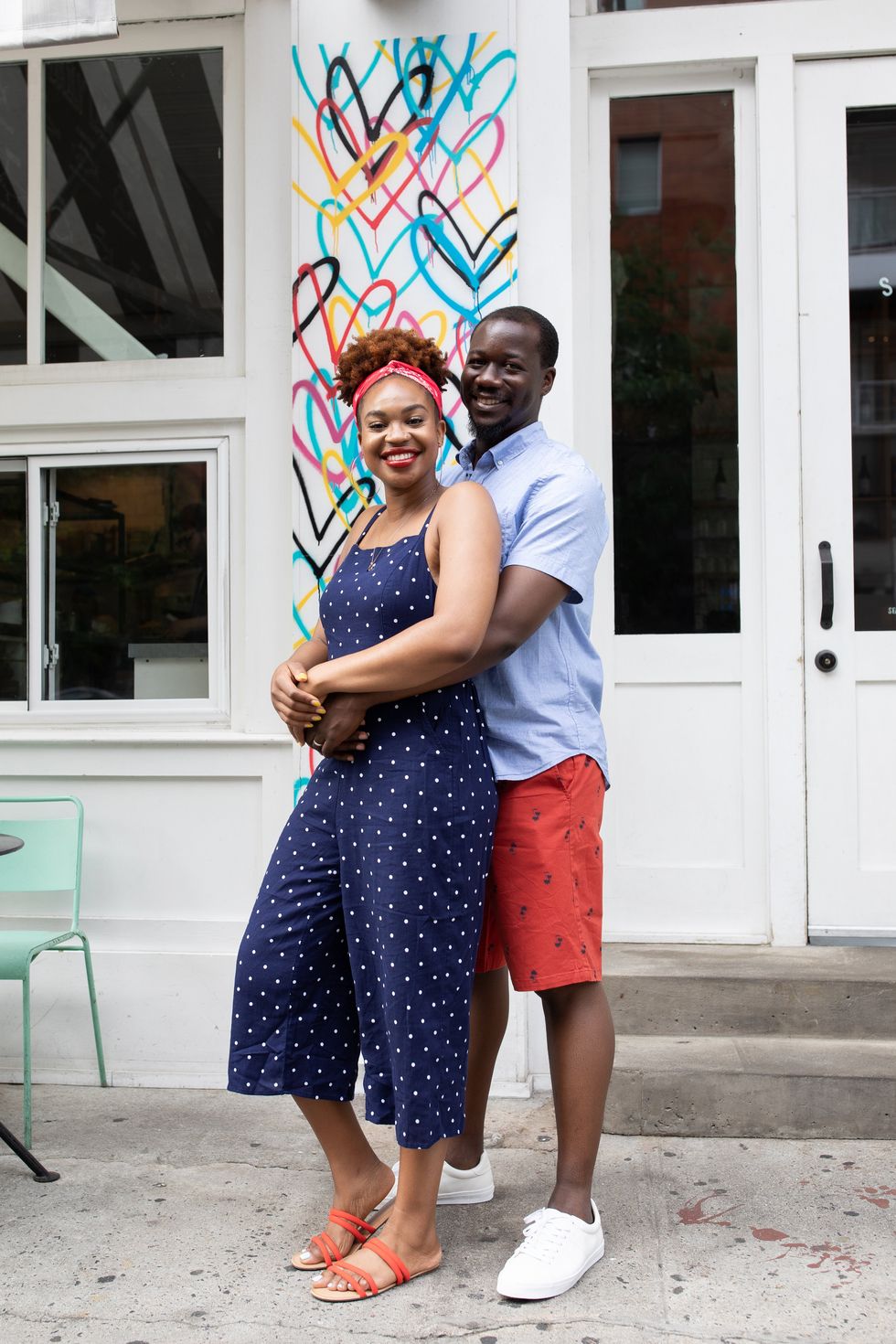
Courtesy of Jonathan & Ijeoma
"I was trying to figure out life. She made me see that it was the right time. For me, it was natural with a bit of encouragement. We were dating, we kept dating, and it was going well."
Meet Me At The Altar
Ijeoma: After his first year of business school, which I think was the summer of 2015, he was in school in California. We were doing long-distance. He did an internship in New York, so we lived together for that summer. In general, I am not comfortable living together before marriage, but we decided to do it because of financial reasons. That process of living together made me feel I wasn't going to shack up with somebody who wasn't trying to marry me. So, I think us living together in that summer, at least from a time perspective, made me feel like marriage was the next thing that we needed to do if we wanted to spend so much time together. If we wanted to be together all day and create a shared space together, then we should get married. Emotionally, I was probably there before then, but I think from a practical perspective it was after that summer. I was like, oh no, we need to get married if you trying to be with me all day.
Jonathan: I think for me knowing that I could spend the rest of my life with Ijeoma in a relationship was one thing, but taking the steps to get married and formalizing that was a different thing. You can feel one way toward somebody, but still feel like in your mind this isn't the right moment to get married. It was just a natural progression for me. She was exhibiting all the right things I liked like being caring, loving, sweet and I just enjoyed spending time with her. Those are things that reveal themselves over time, but they all add up to that feeling of okay, this is the one.
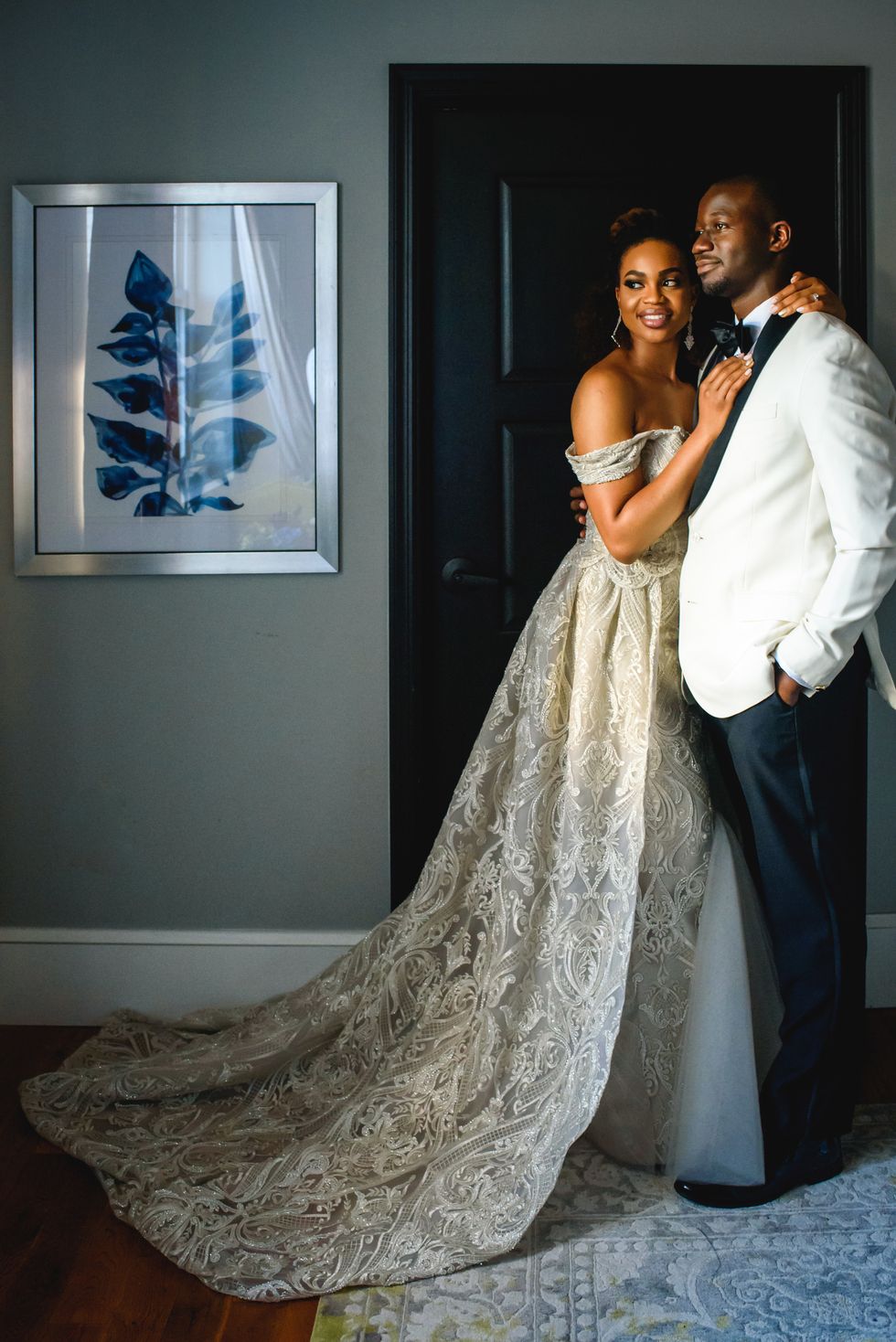
Courtesy of Jonathan & Ijeoma
"It was just a natural progression for me. She was exhibiting all the right things I liked like being caring, loving, sweet and I just enjoyed spending time with her. Those are things that reveal themselves over time, but they all add up to that feeling of okay, this is the one."
Overcoming Fears In Marriage
Ijeoma: Before getting married, I would talk to my mom about everything. So, something I believed would have to change if I wanted my marriage to be successful [was that there would have to be] things that I talk about with my husband that I don't share with the outside world because it's just between us. I have to train my mind to remember he is my family now. Sharing goods new with him is sufficient, and I don't need to go talk to my mom. Even when I'm looking for advice, it's okay for things just to be between him and I. I think that is what I was most worried about--whether I would be able to keep my mouth shut and not reveal all our business to my parents and to my other friends. I'm doing an okay job.
Jonathan: My biggest fear going into marriage was probably my biggest default--that was my trajectory. In my mind, from day one when I left Kenya, I thought I was going to move back and get a job. When you meet someone and make a commitment, all that stuff kind of goes out the window. In my mind, all those things that I wanted to do, I had to reevaluate. That was scary. Then I realized, marriage is two people coming together and being able to bring different goals and perspectives and trying to make it workable for both. I think it's something we are still working on, and we are taking short-term steps to see how we work. I think it is one of those challenges you face in marriage to become one.
Conflict Resolution
Ijeoma: For me, similarly, it's communication but on the opposite side of the spectrum. Growing up, I saw from my mom interestingly, not even from my dad, but my mom's style of communication to anyone was pretty abrasive when she is upset. Early on, I would raise my voice. Which would only be exaggerated when he would close the door, and go somewhere and not talk to me for three hours. I had to unlearn saying exactly how I felt at that moment. Although that might work for me and make me feel good, that might not be what the other person is ready to hear. Our unlearning goes hand in hand because they come from such different sides of the spectrum of conflict resolution and communication.
Jonathan: Whenever I'm pissed off, my initial reaction is not to tell her why I am pissed off. I just like to scowl at her for a couple of hours. It's not a good thing and I recognize that. That's one area where I'm trying to be better. Getting over things more quickly.
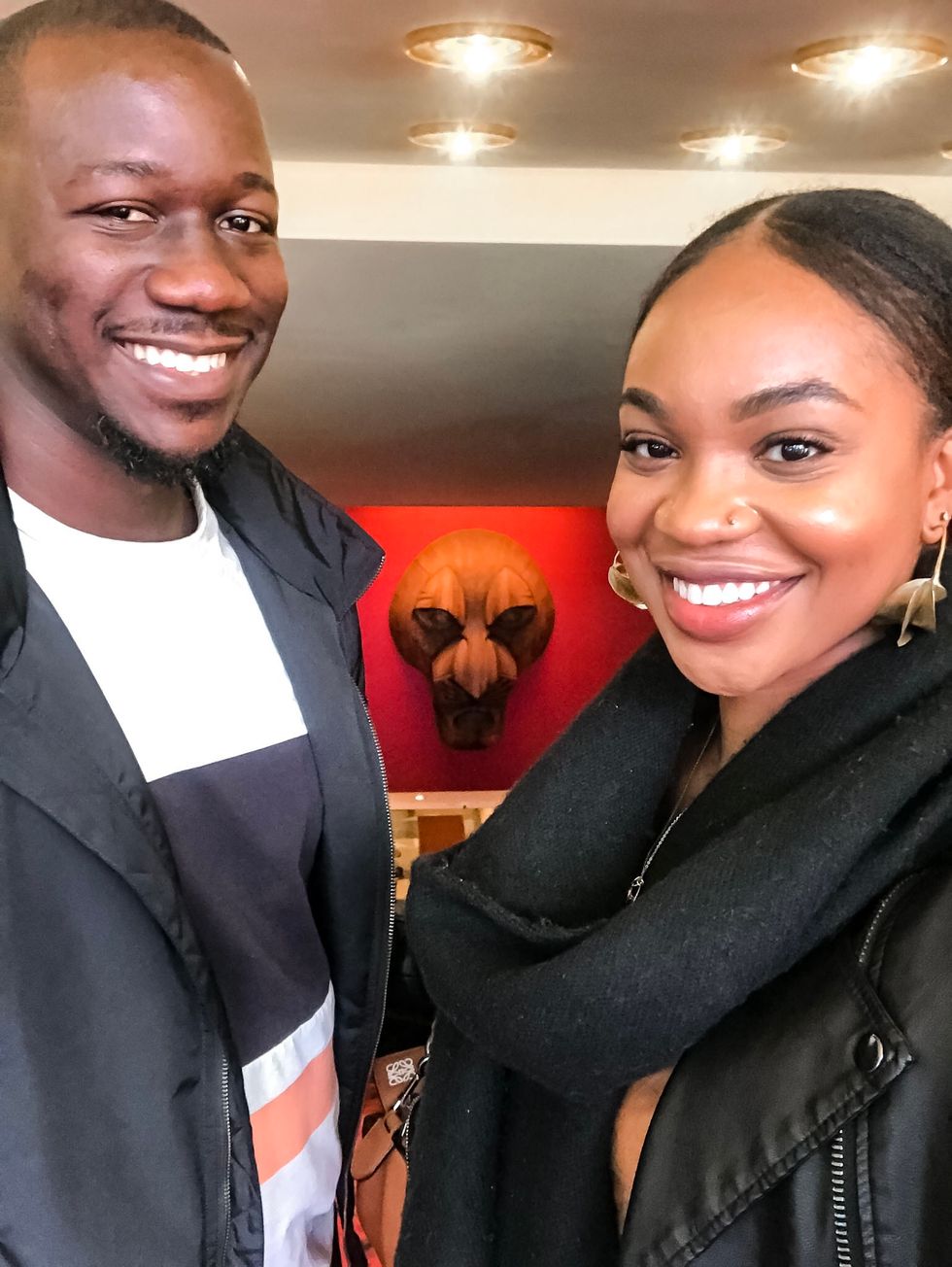
Courtesy of Jonathan & Ijeoma
"I had to unlearn saying exactly how I felt at that moment. Our unlearning goes hand in hand because they come from such different sides of the spectrum of conflict resolution and communication."
Important Lessons In Marriage
Ijeoma: I actually learned a lot about myself. Loving him has taught me that I am capable of doing things I didn't think I was capable of doing. He has supported me through my Ph.D. journey. I wanted to quit so, so, so many times, and he really was my rock on numerous occasions. He encouraged me endlessly, and also gave me the freedom to feel I can do it in my own way. The only reason I was able to finish is because I was able to let go of the traditional understanding of getting a Ph.D., going to conferences, and writing papers. He encouraged me to look beyond the typical traditional task and forge my own path, and do it in a way that would make me happy and fulfill my needs. That was the only way I was able to get it done. His support showed me that I am really, really strong and I can do a lot of things.
Jonathan: For me, [I've learned] everything is a choice. The way you respond to things is a choice. Sometimes I'm just stubborn. The sun will shine the next day and life will go on. Bad behaviors that build up over time can become very toxic. Just in the state of giving good vibes and good energy, it's the little small choices that can bring the right energy. It's healthier, and you grow from it.
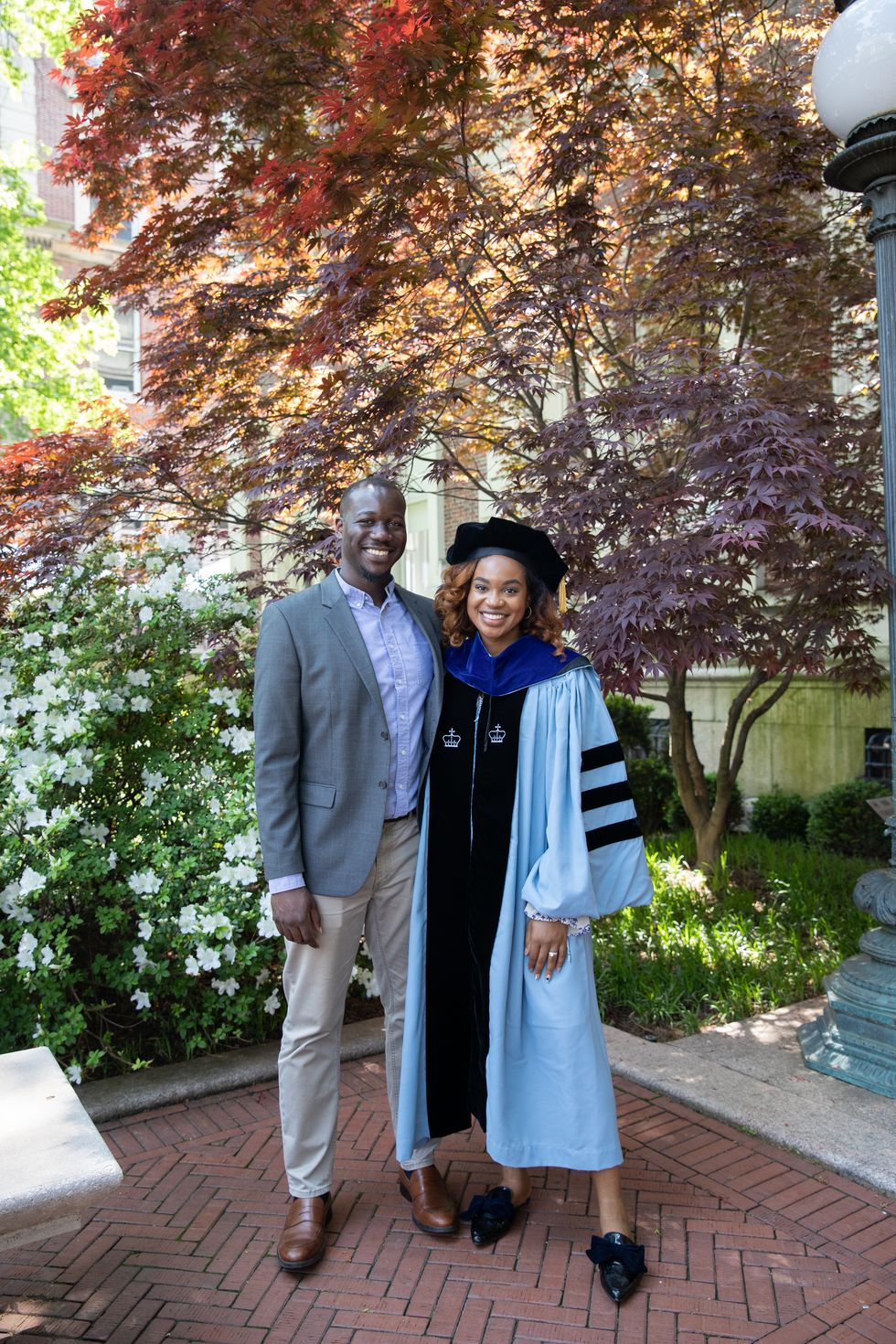
Courtesy of Jonathan & Ijeoma
"He has supported me through my Ph.D. journey. I wanted to quit so, so, so many times, and he really was my rock on numerous occasions. He encouraged me endlessly, and also gave me the freedom to feel I can do it in my own way."
Love Language
Ijeoma: With me, it's about trying all the love languages and seeing what sticks that day. Jonathan is pretty simple when it comes to love language. For him, acts of service and quality time are the top two. We spend a lot of time together. We are very fortunate to spend a lot of time together. I'm quite messy, so I try to do things I know will make him happy or will take a load off him. I will often take on things I know he has to do or forgot to do. We took the test before we got married which definitely helped us.
Jonathan: Some people switch up their love language. They'll tell you it's one thing, but it's another. Sometimes you just have to do all five.
Common Goals
Ijeoma: A couple of weeks before we got married, we took a weekend trip and wrote out our marriage mission statement and our marriage values. It was Jonathan's idea. I don't know where he got it from. It was actually really good! It helped set a foundation for us. Our goal in marriage is to love one another the way that God loves us and to use our marriage as a way to share God's love and light with other people.
Jonathan: I wouldn't change anything she said. I want to amplify one point. It's really about making sure both of us are fulfilled and happy. As for goals, it just has to fit in the context of our marriage. If my individual goals don't fit into the context of our marriage, then I can't do it. At the end of the day, that's what's important.
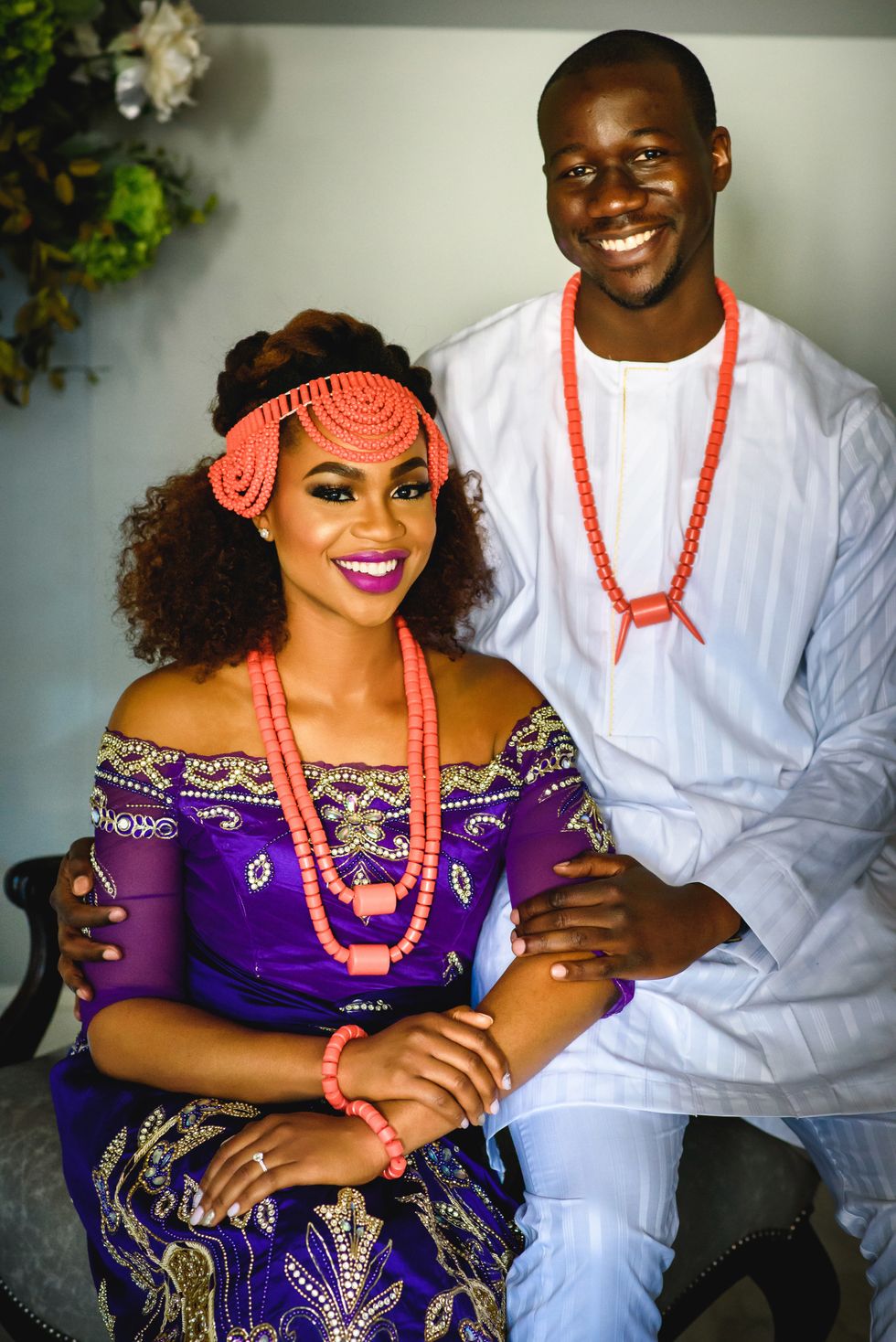
Courtesy of Jonathan & Ijeoma
"Our goal in marriage is to love one another the way that God loves us and to use our marriage as a way to share God's love and light with other people."
Favorite Advice
Ijeoma: There was a time where I was on the phone with my mom, I was cooking and Jonathan had just come home from work. I had her on speakerphone, she asked, "Is that your husband?" I said, "Yes." She said, "Okay then, bye." I told her it's okay Jonathan doesn't mind, we can keep on talking. She said, "No, your husband is home. It's now time for you to be with him and spend time with him. You and I can talk some other time." That was a super-powerful moment because as I said earlier, that was something I had to work on--prioritizing my relationship with my husband as my first earthly relationship. Once we are back in the same space, it doesn't matter who you are on the phone with, what you're doing, stop and take time for each other and spend a little bit of time together.
Jonathan: The most memorable piece of advice I got was from a cousin who said, "Whenever I travel somewhere, I should bring back something small for my wife." Whether it's a hat or makeup bag, just something random. It's such a small gesture but it goes a long way.
For more of Ijeoma and Jonathan, follow her on Instagram and read her lifestyle blog here.
Update:
Soon they'll will have to make time and space for their first bundle of joy. Congratulations are in order as Ijeoma and Jonathan welcome their first child! To learn how Ijeoma broke the news to Jonathan, watch the video below. Stay up to date as they navigate marriage and parenthood by subscribing to Ijeoma's YouTube channel.
The Kola Family Is Expanding! Pregnancy Q&Awww.youtube.com
- We Got Married Five Days After He Proposed - xoNecole: Women's Interest, Love, Wellness, Beauty ›
- Our First Year: Dr. Carjie and Dr. Kerwin Scott - xoNecole: Women's Interest, Love, Wellness, Beauty ›
- Our First Year: Ray & Roslyn Singleton, Marriage - xoNecole: Women's Interest, Love, Wellness, Beauty ›
- Ultimatums In Relationships: Are They Good? Does It Work? - xoNecole ›


